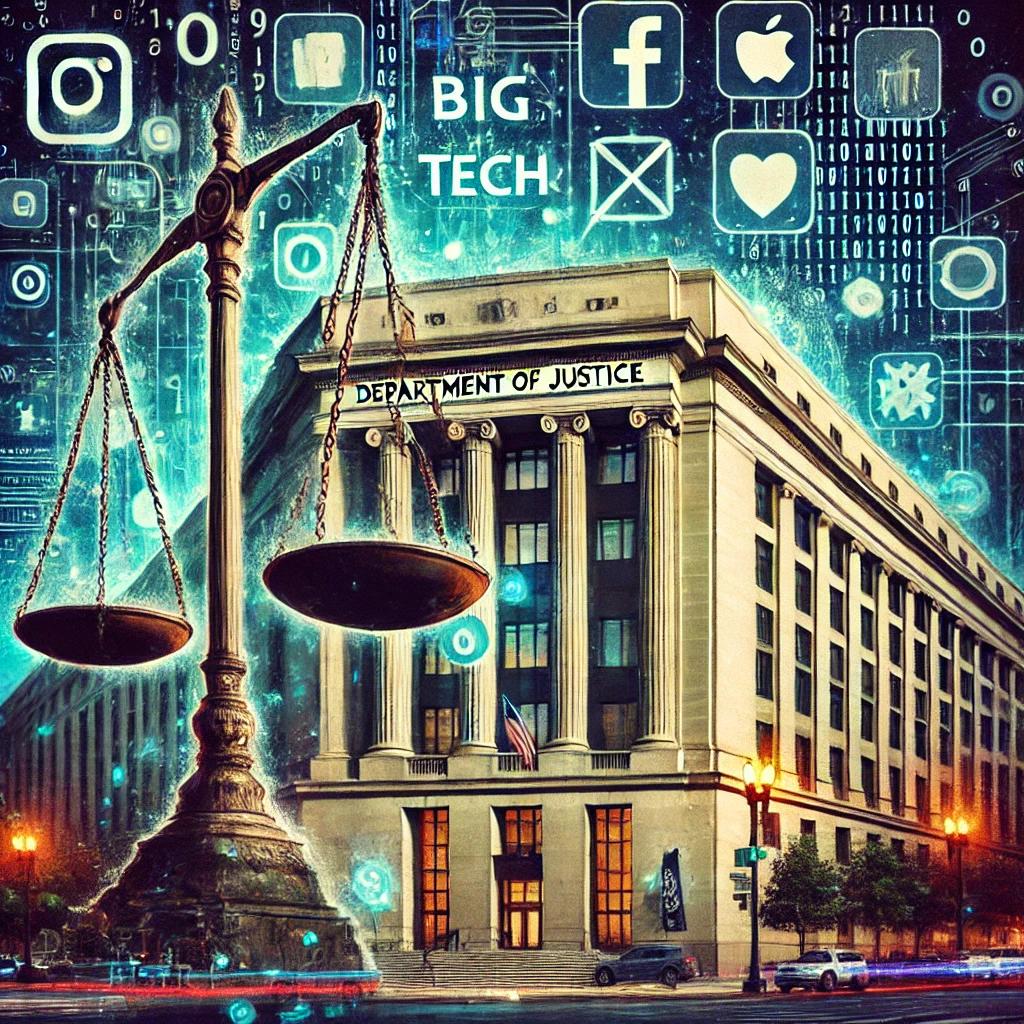The tech industry stands at a critical juncture. The U.S. Department of Justice (DOJ) is ramping up antitrust actions against major tech companies. These moves could significantly alter the way big tech operates and affect billions of users worldwide. Let’s explore what’s happening and why it matters.
The Antitrust Crackdown: What’s at Stake?
Big tech companies like Google, Amazon, and Meta dominate their respective markets. Critics argue that this stifles competition and harms consumers. To address these concerns, the DOJ has intensified its focus on monopolistic practices.
Recent reports suggest that Google may face demands to divest some of its core businesses, such as Chrome or Android. These actions aim to prevent Google from leveraging its dominance in search and advertising to maintain control across multiple platforms.
How Did We Get Here?
For years, regulators hesitated to intervene in the rapid expansion of tech giants. However, growing concerns about data privacy, competitive fairness, and misinformation have pushed lawmakers to act.
The Biden administration has made antitrust enforcement a priority. This aligns with public sentiment favoring fair competition over monopolistic control. Congress has also been vocal, proposing several bills to curb big tech’s influence.
What Could Change for Big Tech concerning Antitrust?
If the DOJ succeeds in its efforts, we might see significant changes in how big tech operates:
- Divestitures: Companies like Google could be forced to separate core assets such as Android or Chrome.
- Market Competition: Smaller tech firms may finally have a chance to compete on a level playing field.
- Consumer Impact: Users could gain access to more choices and potentially fairer pricing in digital services.

Global Implications of Antitrust
The U.S. is not alone in targeting big tech. Europe has already imposed record fines on companies like Amazon and Meta for antitrust violations. The potential actions in the U.S. could set a global precedent, encouraging other nations to follow suit.
What Does This Mean for Consumers?
While these changes aim to foster competition, they may come with challenges:
- Short-term Disruptions: Users might experience interruptions as companies adjust their business models.
- Potential Cost Increases: Divestitures could increase operational costs for companies, potentially passed on to consumers.
Still, in the long term, users may benefit from a more competitive and innovative market.
The Road Ahead
The DOJ’s push against big tech is likely to face significant legal challenges. Tech giants have vast resources to defend their practices. However, the growing momentum for fair competition could tilt the scales.
The future of big tech depends on how these legal battles unfold. For now, one thing is clear: the landscape of the technology industry is on the brink of a major shift.
Conclusion
The DOJ’s actions against big tech are shaping up to be a defining moment. Whether these efforts succeed or fail, they highlight the need for accountability in the digital age. For users and businesses alike, this is a critical time to stay informed and engaged.


